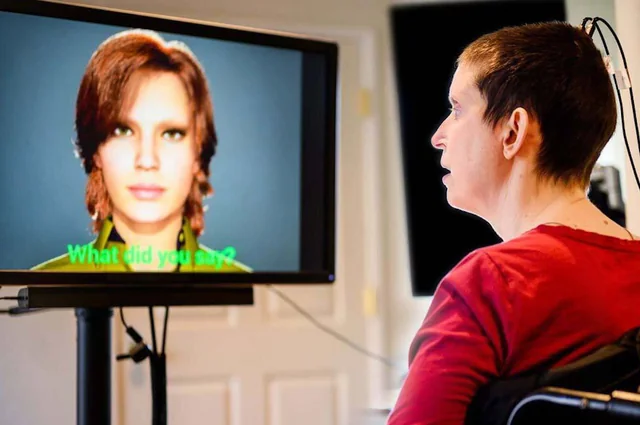
Ann Johnson, a 47-year-old woman who was paralyzed by a stroke in 2005, has spoken again for the first time in 18 years thanks to an experimental brain-computer interface (BCI) technology, Turanews.kz reports.
The BCI, developed by researchers at the University of California, San Francisco (UCSF) and the University of California, Berkeley, uses an implant placed on the surface of Johnson’s brain in areas responsible for speech and language. The implant, which contains 253 electrodes, intercepts brain signals from thousands of neurons and sends them to a computer.
A team of engineers and computer scientists at UCSF then developed a machine learning algorithm that can translate these brain signals into text or sound. The algorithm was trained on a recording of Johnson’s voice, so it can generate speech that sounds like her own.
In a recent test, Johnson was able to use the BCI to speak 80 words per minute with an accuracy of 75%. This is significantly slower than the average rate of speech, but it is still a major breakthrough for people with paralysis.
“This is a major milestone in the development of BCI technology,” said Dr. Edward Chang, who led the study at UCSF. “It shows that we can now restore the ability to speak to people who have been paralyzed for many years.”
The researchers hope that the BCI could be used to help other people with paralysis regain their ability to speak. They are also working to improve the speed and accuracy of the system.
“This is just the beginning,” said Chang. “We believe that BCI technology has the potential to revolutionize the way we treat paralysis.”
The study was published in the journal Nature on Wednesday.



